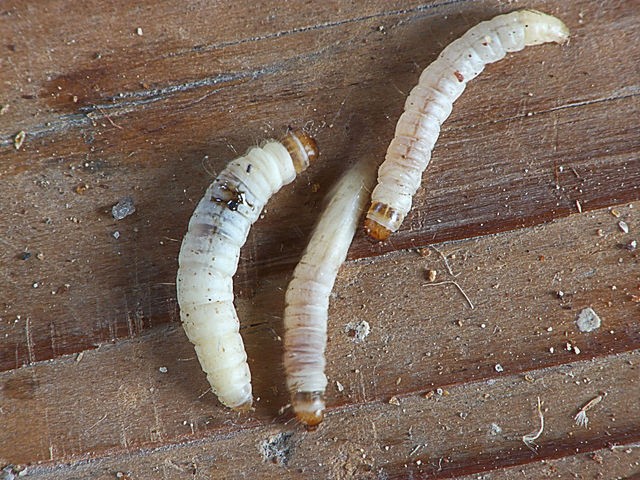The saliva of wax worms, which are moth larvae that infest beehives, has been found to have enzymes that quickly degrade plastic bags, according to a report by The Guardian.
The researchers behind the discovery claim that the enzymes could break down polyethylene in a matter of hours at an ambient temperature.

It Started With The Bees
It all started when one scientist, a novice beekeeper, cleaned out an infested hive. She discovered that the larvae had begun eating holes in a plastic garbage bag.
The study, according to the researchers, may have revealed the existence of degrading enzymes in insect saliva, which could completely alter how polluted material can be cleaned up.
According to The Guardian, polyethylene accounts for 30% of all plastic production and is used in bags and other packaging materials that contribute significantly to global plastic pollution. The only recycling undertaken on a large scale today involves mechanical methods and results in lower-quality goods.
The early breaking of the polymer chains, which is a hurdle in plastic degradation, can be readily overcome by the enzymes, according to the researchers. Normally, this demands a lot of heating, but the enzymes function at room temperature, in water, and at a pH of 7.
Dr. Federica Bertocchini of the Biological Research Center in Madrid said that her beehives were overrun with wax worms, so she started cleaning them and placed the worms in a plastic bag.
"After a while, I noticed lots of holes and we found it wasn't only chewing, it was chemical breakdown, so that was the beginning of the story."
Read also : Scientists Create A 'Robot Fish' That Eats Microplastics - Will It Solve Plastic Pollution?
New Method of Dealing with Plastic
The researchers claim that it is still early in the commercial application process. Dr. Clemente Arias, a researcher at the Spanish research center, stated that they need to conduct extensive research and consider how to build a new method of dealing with plastic garbage.
The experts predicted that in addition to big recycling facilities, it would one day be feasible to have household kits that allow for recycling plastic bags into valuable items.
Other researchers are currently looking at the possible plastic-eating abilities of beetle and butterfly larvae, according to The Guardian.
In the past, beneficial enzymes have been found in microorganisms, and according to a study from 2021, bacteria in soil and waters all over the world are evolving to consume plastic. It discovered 30,000 unique enzymes that might potentially break down 10 distinct kinds of plastic.
The study, published in the journal Nature Communications, narrowed down the two plastic-eating proteins from 200 found in the wax worm saliva.
"This study suggests insect saliva might [be] a depository of degrading enzymes which could revolutionize the bioremediation field," the researchers said in a statement.
Read also: 'Microplastics in Meat': Lab Test Shows Microplastic Contamination in Pork, Beef, Milk, and Feed
This article is owned by Tech Times
Written by Joaquin Victor Tacla
![Apple Watch Series 10 [GPS 42mm]](https://d.techtimes.com/en/full/453899/apple-watch-series-10-gps-42mm.jpg?w=184&h=103&f=9fb3c2ea2db928c663d1d2eadbcb3e52)



